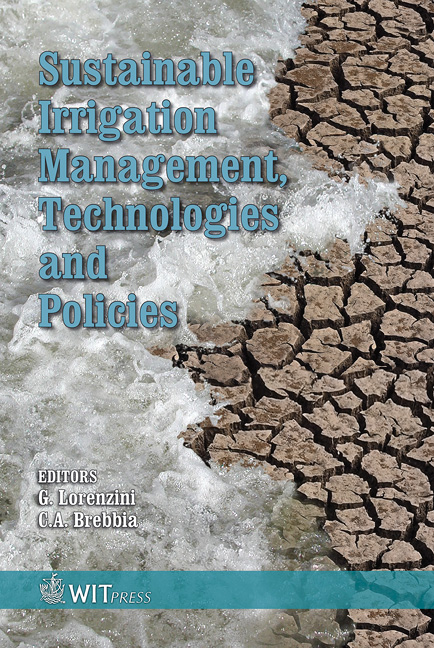Towards Sustainable Irrigation In Western Australia
Price
Free (open access)
Transaction
Volume
96
Pages
10
Published
2006
Size
938 kb
Paper DOI
10.2495/SI060211
Copyright
WIT Press
Author(s)
M. R. Rivers, A. F. McCrea, G. Calder, K. Moore, R. Kuzich, D. Hanks & D. Nandapi
Abstract
This paper summarises the results and implications from two research trials, both undertaken in the Harvey Irrigation Area (HIA) in South Western Australia. The first trial assessed the sustainability of irrigation in the HIA at the regional, or irrigation scheme, scale. The second assessed a number of irrigation Best Management Practices (BMPs) at the farm-scale and then applied these results to their potential system-scale implications. The single most important point in terms of the sustainability of irrigated farming in the south west of Western Australia is likely to be the real (or more importantly, perceived) issue of nutrient export to regional waterways. Nutrient losses from irrigated agricultural land were found to be associated more with winter rain-driven processes than with irrigation activities. Also, significant water and nutrient savings were observed to have been made when switching from traditional surface (flood) irrigation systems to more efficient, centre pivot systems. However, these trials have shown that there are important nutrient assimilation and loss processes confounding apparently simple trial results. This is an important issue in determining how to appropriately assess the \“sustainability” of irrigation practices. Keywords: sustainability, Best Management Practice, irrigation, water use efficiency, eutrophication, runoff, catchment.
Keywords
sustainability, Best Management Practice, irrigation, water use efficiency, eutrophication, runoff, catchment.





